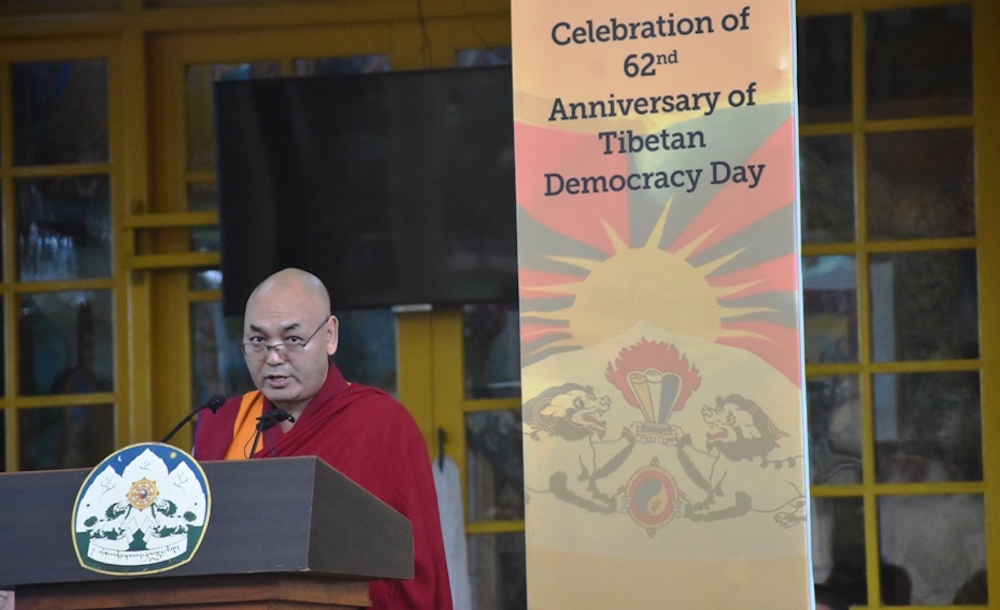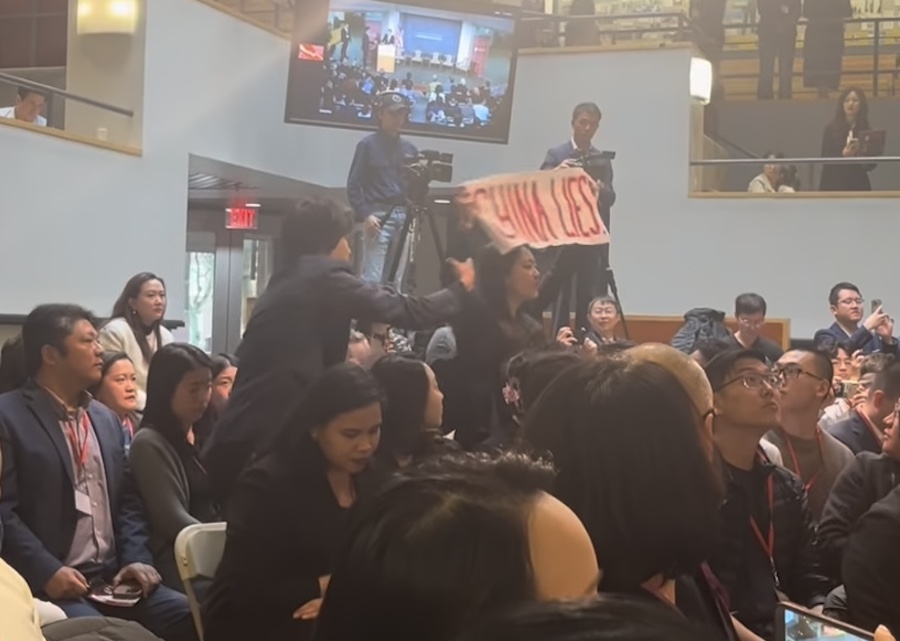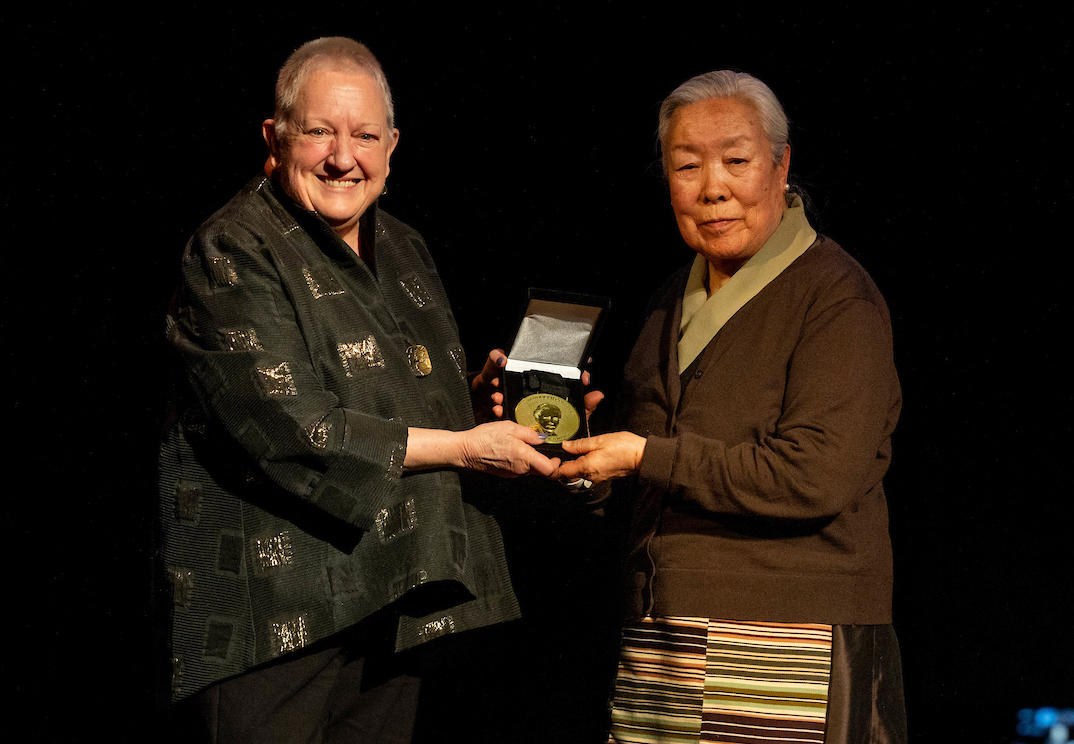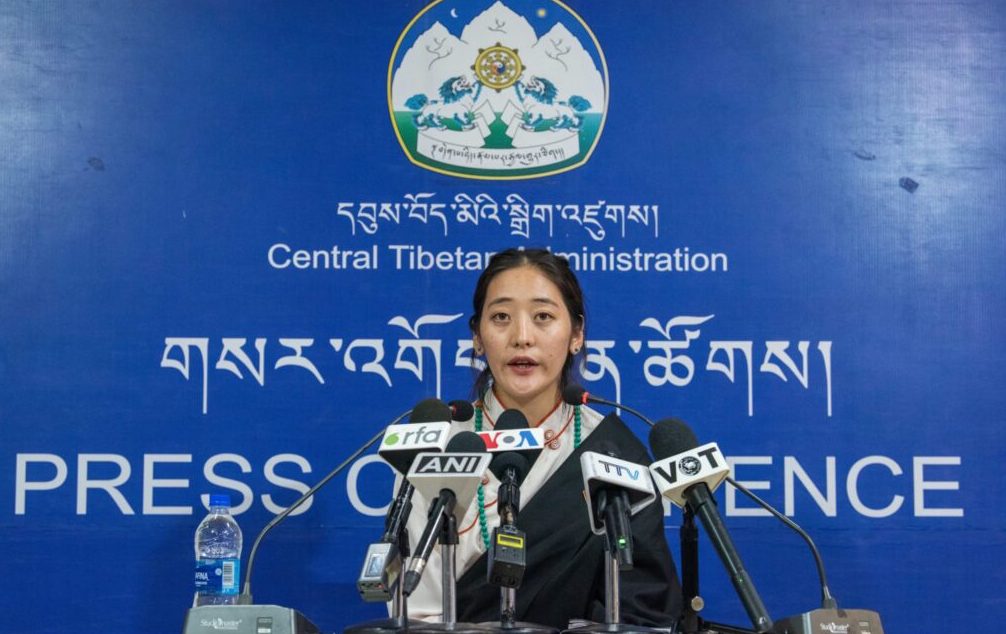By Choekyi Lhamo
DHARAMSHALA, Sept. 2: The Central Tibetan Administration, known also as the Tibetan government-in-exile, observed the 62nd Democracy Day in Dharamshala at the Tsuklakhang temple courtyard on Friday. Noted dignitaries attended the event including Member of the Himachal Pradesh Legislative Assembly Vishal Nehria as the chief guest as well as CTA cabinet ministers and Tibetan MPs as guests. Tibetans in exile celebrate the day to mark the establishment of the Tibetan Parliament-in-Exile on September 2, 1960.
The address by the Kashag (Cabinet) presented by Education Minister Tharlam Dolma detailed the historical trajectory of the government-in-exile, “The Kashag was established by the Seventh Dalai Lama Kelsang Gyatso when he assumed spiritual and political leadership of Tibet in 1751. The Kashag at that time constituted three lay and one monk ministers, the composition of which has since undergone gradual changes. However, the uninterrupted continuation of Tibetan government’s legitimacy from the first king Nyatri Tsenpo to Gaden Phodrang has been symbolized by the handover of official seal, Katham Sishi Dikyi, by the Seventh Dalai Lama to the then Kashag [Cabinet]. The tradition of handing over the seal during the change of Kashag has continued until now. ”
The minister also praised the recent congressional hearing on June 23rd with regard to the historical independent status of Tibet and the subsequent introduction of a bill on the Resolution to the Tibet-China Conflict Act. “It not only conforms to the CTA’s Middle-Way policy, but also helps to give leverage to our efforts to resolve the Sino-Tibet conflict through dialogue. We will continue to make efforts to encourage like-minded countries in Europe to do the same,” she further stated.
Speaker of the Tibetan Parliament in Exile Khenpo Sonam Tenphel noted the essential values of democratic practices deemed important by the Tibetan parliament, “The democratic system of governance is based on the postulation that there be no discriminatory distinctions made on the basis of a person’s social status defined by the question of whether he or she is powerful or weak, or rich or poor; whether that person is male or female; or on the basis of his or her ancestry.”
“To ensure its effectiveness and success, we should make sure that there is no weakening of the unity of the Tibetan people,” he further said.










